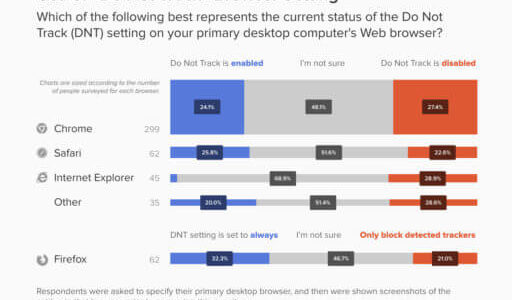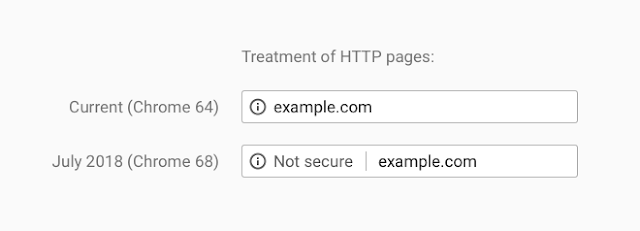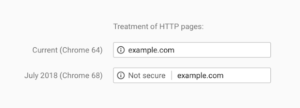
In a push we feel is likely to go nowhere, search engine DuckDuckGo has announced the “Do-Not-Track Act of 2019”, draft legislation that would legally require websites to honor users’ tracking preferences. For those unfamiliar, Do-Not-Track (DNT) is a voluntary setting you can toggle in your browser to instruct websites not to track you for advertising purposes. Were the act to pass, sites would be required to stop tracking users with certain methods, which in turn would send less data to marketing and advertising companies.
DNT is currently built into major browsers including Chrome, Edge, Internet Explorer, Firefox, and Opera. It’s currently up to individual websites and networks to respect users’ DNT preferences (or not).
The proposed legislation would address items such as:
- Enforcement for violations, such as fines
- Transparency to users on how their data is used
- Permitted uses, consent, and anonymizing data
DuckDuckGo hopes to retire the current practice of allowing third-party data brokers to track users by default and to limit first-party tracking outside of what the user expects. The given example is Facebook and Whatsapp (owned by Facebook), stating that Whatsapp data couldn’t be used to determine what Facebook or Instagram advertising would be shown to you.
You can read more about DuckDuckGo’s proposal here.



